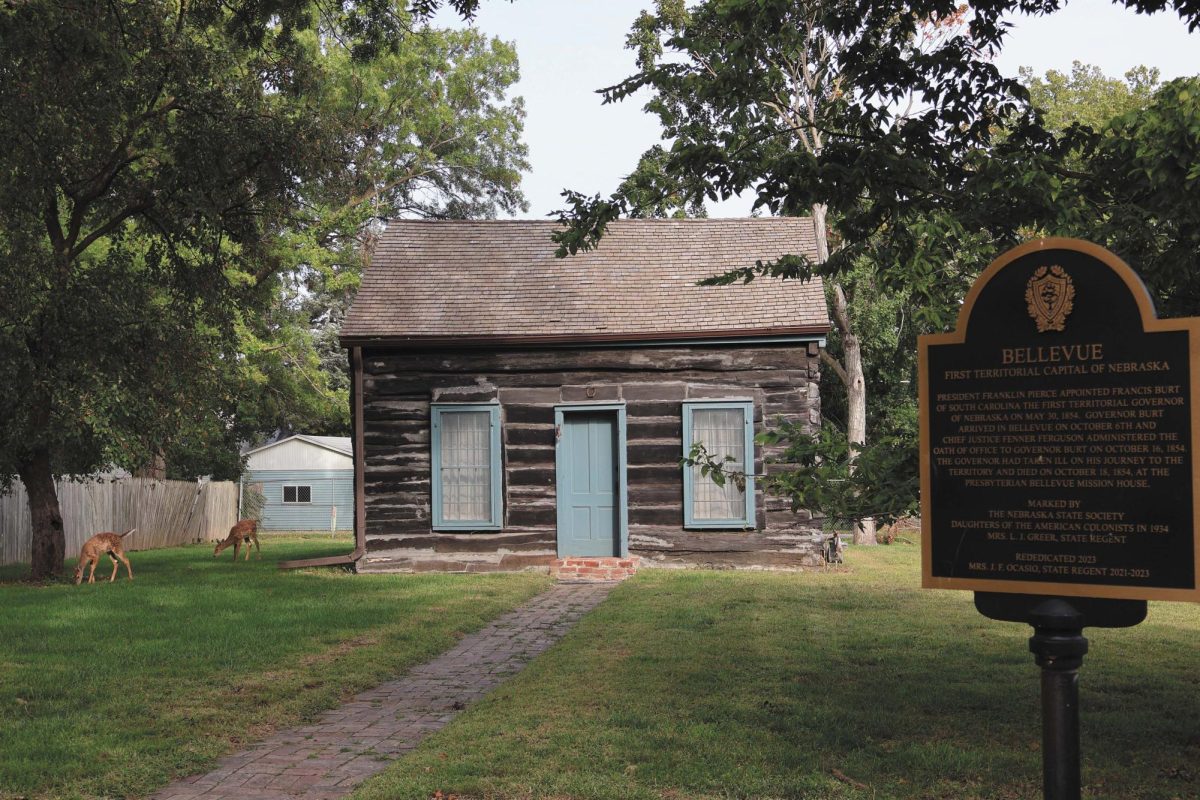In the past several years, book banning has been on the rise due to concerns about inappropriate mate- rial. However, such censorship has also raised discussion about restrict- ing books simply because of their diversity.
School library books are typically challenged by individuals in a school district, especially parents. Ac- cording to Bellevue Public Schools policy, parents and guardians can exempt their child from curricular material with which they have is- sue. Parents/guardians are also able to suggest through formal complaint procedures that a book should be re- stricted for all students. If parents/ guardians cannot resolve the issue with the building principal, the com- plaint will go to a Media Committee.
“There’s been parents who’ve had issue with books that the students have been required to read for Eng- lish, and then the teacher has found them an alternative book,” media specialist Shannon Dunkel said. “And I don’t think that’s something new. I think a lot of the school li- brary banning is pretty new because I’ve been here for 13 years, and I’ve never really had conversations like that until the last couple of years.”
Last spring, Plattsmouth School Board member Terri Cunningham- Swanson requested the removal of 49 books from school libraries, causing school librarian Christine Knust to resign. More than 1,600 Plattsmouth residents then voted to remove Cunningham-Swanson from office. One book that Cunningham- Swanson attempted to ban was “The Black Flamingo” by Dean Atta, which is a story about a biracial gay teen.
“You’re banning parts of culture and opinions that other people have
written because you don’t agree with them or you think people might be sensitive to them,” sophomore Isa- bella Jaskot said. “People are differ- ent, and to try and deny that and take it off shelves of not only elementary schools, but high schools as well, where we are mature enough to read that kind of thing… it makes me mad.”
At a Nebraska State Board of Education meeting two years ago, board member Kirk Penner read sev- eral sexually explicit passages from books found in school libraries. He recently proposed changes to school library rules that would prohibit li- braries from providing “pornograph- ic materials.” The rules would also require school libraries to publish their catalogs online.
“I’m trying to get sexually explicit content out of our libraries,” Penner said at a Board of Education meeting on Feb. 2. “There’s no justification to having it in any of our libraries, and it’s in some school libraries. I want to give the librarians, and the school boards, and the school superinten- dents something they can go to and say, ‘I can’t have this in my library.’”
The proposed rules detail what materials would be prohibited and would allow any “concerned Nebras- ka taxpayer” to raise concerns over rule violations. If a school is found to have violated the rules, the Depart- ment of Education could remove its accreditation. Teachers who fail to comply with the rules could have their teaching license revoked.
“Schools already provide ap- propriate educational materials for students and should continue to be encouraged to do so; not discouraged for fear of overstepping an indistinct line that this language introduces,” Wendy Callahan, one of seven peo- ple to submit public comment in op- position to the rule edits, said. “Our children… are already in an environ-
ment where pornography and sexu- alized material are not only NOT provided, but are already blocked on web browser.”
Penner’s rule edits will be up for a vote at the next State Board of Educa- tion meeting in March. Some board members raised concerns about the edits’ language, as well as a lack of local control and public input.
“When you get to this parsing of sexually explicit content… you can start to get to important material that students need to read, they need to understand, they need to learn about to be in educated society,” board member Jacquelyn Morrison said. “Because of that, I think it’s a local control issue. I think it’s a discretion issue for librarians.”
Several public comments sub- mitted to the board said that librar- ians already carefully consider the appropriateness of library material. The American Library Association states that librarians should strive to provide a “diverse, balanced, and high-quality collection representing all points of view on controversial issues.” Many factors go into the se- lection of school library books, such as maturity level, appropriateness of content, and relevance to students’ lives.
“My number one goal is that any student can find themselves in a book,” Dunkel said. “Then you go to the two things that get really tricky in young adult lit… managing the profanity and the sex. And then it’s like, where’s the line? How many cuss words is too many? And what graphic sex scene is porn, as every- one likes to throw out this word.”
The American Library Associa- tion reported 1,269 attempts nation- ally to ban or restrict library material in 2022, compared to 464 attempts in 2012. The most common reasons books are banned, according to non- profit PEN America, is due to sexual
content, discussion of race or rac- ism, or coverage of LGBTQ+ iden- tities. Those who support book bans say that they are protecting children from mature topics.
“There is much evidence of sexually explicit materials in our schools,” Sherry Jones of the Ne- braska State Board of Education said. “I appreciate the work of media specialists and their knowledge, but I don’t think that they can be the only safeguard to ensure that sexually ex- plicit materials are not accessible to our students.”
Of 197 books challenged in Ne- braska from August 2021 to June 2023, only eight challengers said they read the book in its entirety, ac- cording to the Flatwater Free Press. Those who oppose book banning say that challengers may not recognize the educational value of a book or take certain passages out of context. Additionally, opponents say that censorship too often silences mar- ginalized identities.
“I feel like this all got wound up because a group of people did not want books with gay, lesbian, bisex- ual characters,” Dunkel said. “And it’s just tough for me because kids struggle with that. And what is for me to say that what they’re feeling and what they’re living is wrong? No one is telling you that you have to read this, but I think it should be available for kids who need it.”
Some school districts have been able to compromise on book ban- ning. Rather than taking books off the shelves entirely, districts such as Plattsmouth and Kearney have be- gun requiring parental permission for students to check out certain books. Jaskot said she believes that while obscene materials with no educa- tional value should not be in schools, many censored books acknowledge important issues in society.
“I do think books that are mature should be kept out of elementary schools,” Jaskot said. “That I un- derstand, because obviously an ele- mentary schooler doesn’t need to be reading something that’s not for their age level, but high schoolers, again, they know that gay people exist, they know that black people exist, they know about racism and all that stuff so at least allow them to read what they want to read… if we deny [uncomfortable topics] then, I mean, we’re basically lying to ourselves.”



